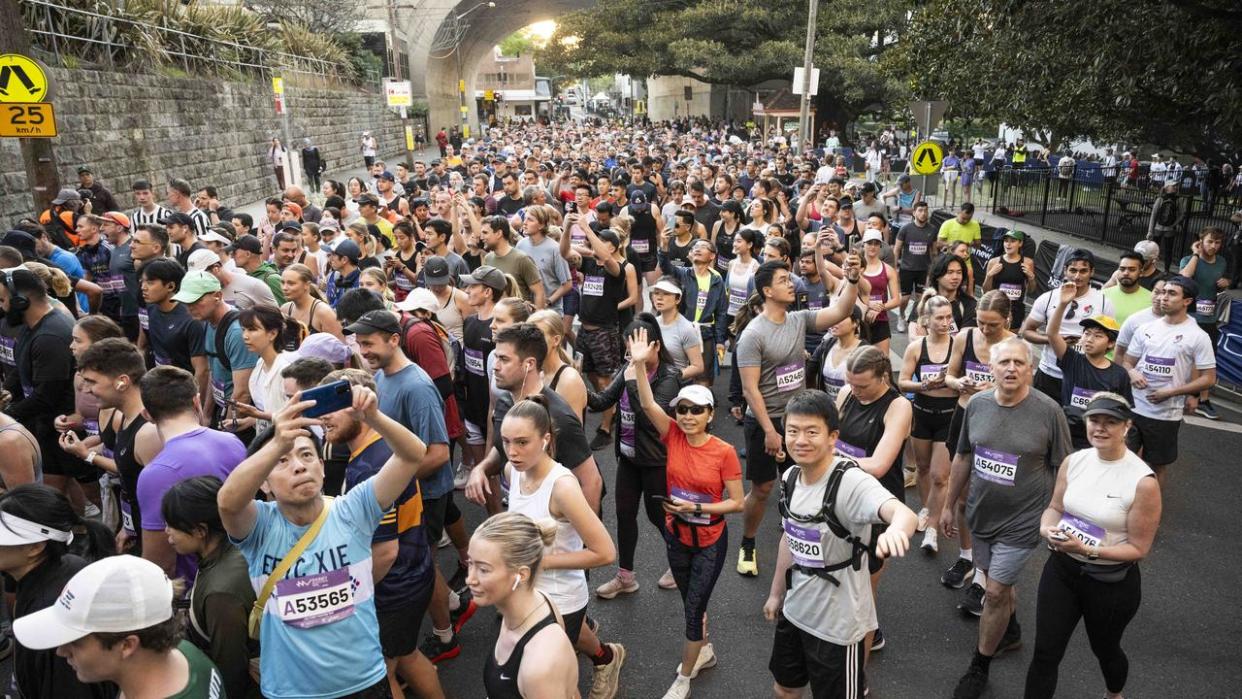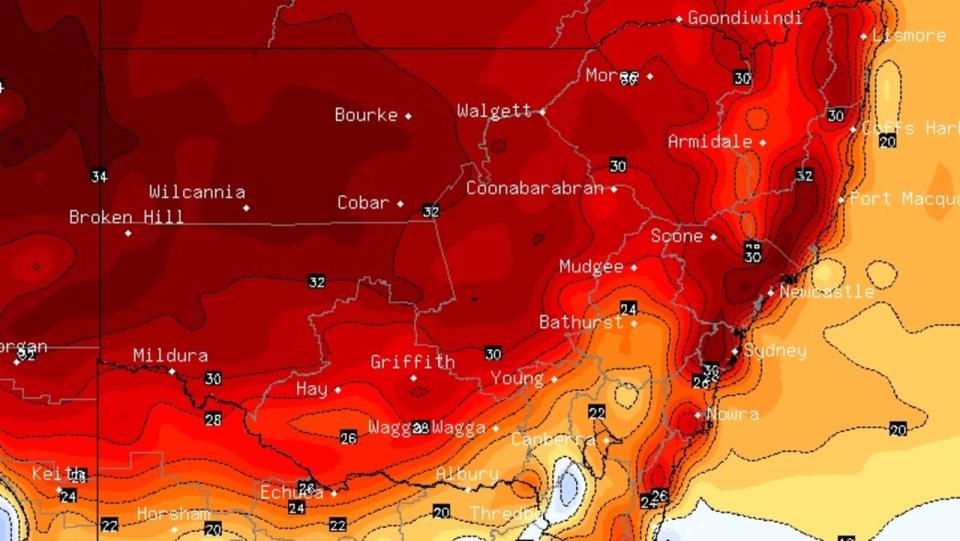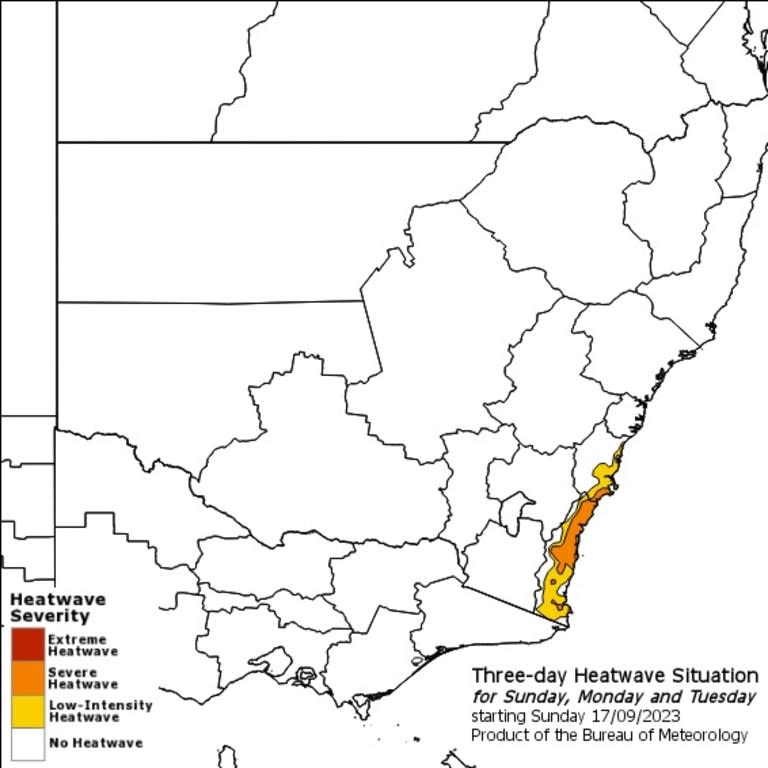‘Severe’: State braces for heatwave

Parts of NSW have been warned to brace for a potentially severe heatwave as the state swelters through a second day of hot temperatures.
The mercury is tipped to peak at 30C on Sunday as thousands of athletes compete in the 42km+ Sydney Marathon.
The Bureau of Meteorology (BOM) has issued a low-intensity to severe heatwave warning for Batemans Bay and other parts of the Illawarra and South Coast Districts, where temperatures could extend into the mid-thirties.

Temperatures will remain warm overnight, with a slow-moving high-pressure system pushing minimum temperatures to above 15C.
High heat warnings are in place for the state’s south due to a slow-moving low-pressure system.
“Maximum temperatures over the coming days reaching the low to mid-thirties with overnight minimum temperatures in the mid to high teens,” a BOM spokesman said.

“These temperatures are above average by around ten to fifteen degrees and persist for an unusually prolonged period for this time of year.”
The seasonally-early boiling temperatures are forecast to remain until Wednesday in which a cold should return conditions to “near average”.

NSW Health also issued a statement urging people to be wary of signs of heat-related illness like confusion, dizziness, fainting, nausea, vomiting, weakness, headaches heavy or loss of sweating, muscle cramps, dry swollen tongue, rapid pulse and rapid shallow breathing.
In a statement the department said: “People showing any of these signs should seek urgent medical attention through their GP or local emergency department.”
People have been urged to limit physical activity, stay hydrated, avoid alcohol and other hot or sugary drinks and stay out of the sun during the hottest parts of the day.
The health authority said the elderly, infants, young children, outdoor workers more be more susceptible to the high temperatures.
People on some medications, or who are unwell or have chronic illness, or live alone or are socially isolated may also find themselves more affected by the heat.
Dry, warm and sunny weather dominates much of the country this weekend due to a slow-moving high-pressure system.
Daytime maximum and overnight minimum temperatures are expected to be 6 – 12°C above average across all of southern Australia today.
Latest: https://t.co/4W35o8i7wJpic.twitter.com/8qxv90G6NW— Bureau of Meteorology, Australia (@BOM_au) September 16, 2023
The presence of bushfires also continues to remain a threat.
As of 9.30am there are more than 126 fire incidents reported by the NSW Rural Fire Service (NSW RFS). While no warnings are in place, people are urged to download the Fires Near Me app and keep up-to-date with major updates.
The RFS have also warned of smoke from hazard reduction burns which may have settled over areas in Sydney‘s south and west overnight.
“This morning, as the temperature increases and winds pick-up, it is expected that smoke will lift and continue to dissipate,” an advisory from 7am Sunday morning read.
Asthma sufferers have been reminded to follow their Asthma Action Plan, and have their reliever medicine on hand, where necessary.


